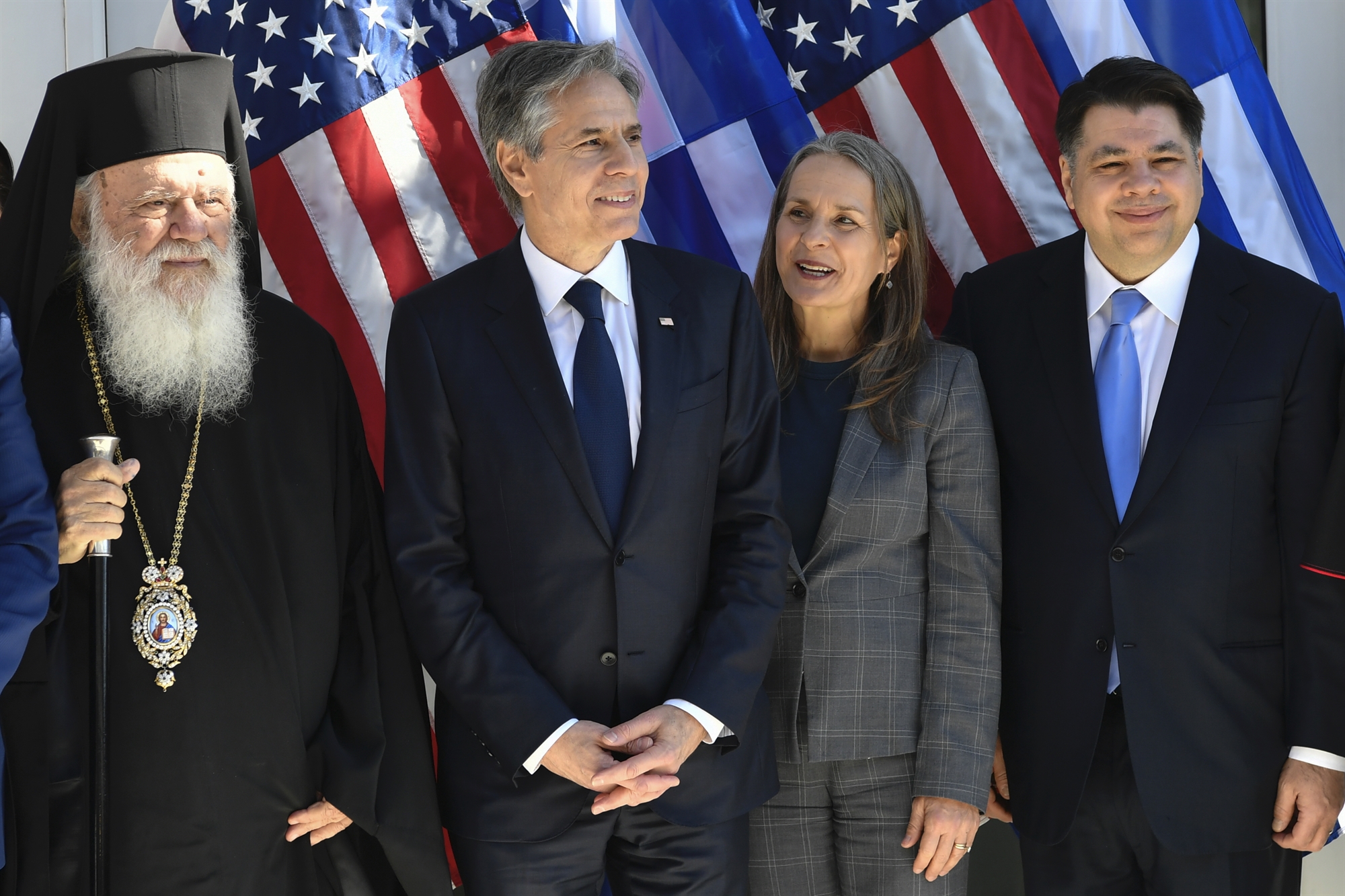
Her intention Athens for tillage that can lead to an honest dialogue based on everything Greece can discuss and not on a maximalist agenda and Ankara’s claims was the main diplomatic luggage of the US Secretary of State, Anthony Blinkentransferred to Washington, after his contacts with the Prime Minister Kyriakos Mitsotakis and his colleague Nikos Dendias.
Mr. Blinken conveyed to Athens the clear sense of relief that Washington feels after the devastating earthquake in southern Turkey and the virtual retreat Recep Tayyip Erdogan on the domestic front, the Greek-Turkish “fight” and the possibility of an episode during two parallel pre-election periods on both sides of the Aegean have been relegated to the background for the time being.
There is a feeling on both sides (although Mr. Erdogan is the only one who really knows) that the Turkish elections will not be extended beyond June, a fact that is seen in Washington as a “window” of opportunity to create conditions for post-election dialogue, as well as Mr. Blinken hinted during his joint statements with Mr. Dendias.
He expressed hope that “over time” the positive dynamics after the earthquakes “will create an even stronger foundation for the two countries to move forward and resolve their differences.” And he added that “now it is no secret that Greece and Turkey are entering the pre-election period, and this is usually a rather confusing time to start discussions on such issues.”
Both the prime minister and the foreign minister emphasized that the solidarity shown by Greece towards Turkey at the current stage is different from foreign policy issues and is a humanitarian obligation, not an investment in a certain direction. Mr. Dendias actually stressed that “our independent duty is to help our compatriots, Turks and Syrians.”

Turkish attitude
The US Secretary of State reportedly noted that after the elections in Greece and Turkey, efforts should be made to resolve existing disputes.
In more detail, from well-informed sourcesPrime Minister, during the discussion he had with Mr. Blinken on Monday evening, recalled Turkey’s behavior up to February 6 (earthquakes), since Turkish-Libyan memorandum 2019, an attempt to divide the Greek borders due to a sharp increase in the number of refugees in March 2020, the Oruts Reis crisis later that year, the letters by which Greek sovereignty over the islands of the Eastern Aegean is linked to their demilitarization.
At the same time, the Greek side explained that the attempt by Foreign Minister Mevlut Cavusoglu, during a meeting with Mr. Blinken, to refer to the “six points”, allegedly presented by the representative of the President of Turkey, Ibrahim Kalin, to the Prime Minister, the diplomatic adviser to the Minister, Anna-Maria Bura, is, of course, superfluous, since Athens a priori requires the preservation of open channels. The fact is that in the event, for example, of the resumption of intelligence contacts, Greece cannot discuss issues of sovereignty, which Ankara is clearly hinting at.
After yesterday’s contacts, his joint communiqué was published 4th Strategic Dialoguewhich includes seven categories of cooperation (regional affairs, defense and security, humanitarian challenges and disaster preparedness, energy and environment, law enforcement and counter-terrorism, trade and investment, and people-to-people ties) and the ease with which it was drawn up, this testifies to the atmosphere of sympathy between the two governments.
Western Balkans on the agenda
The visit of US Secretary of State Anthony Blinken and his contacts in Athens also served as an informal but clear and visible support for the initiatives taken by the government in the Western Balkans in recent years. Foreign Minister Nikos Dendias noted that he and Mr Blinken agree “on the need to maintain the Euro-Atlantic course of the Western Balkans”, while he recalled that he had repeatedly visited the region in an attempt “by Greece to avoid a new crisis in our region”.
On a practical level, both ministers were actually referring to the Greek government’s attempt to mediate between Belgrade and Pristina to create a basis for dialogue, guided by the Franco-German proposal to reduce tensions. The ambitions are not great, but they are aimed at agreeing on a mutually acceptable framework for contacts between the two sides and, of course, not at content. It’s no secret that American support for Athens’ initiatives in the Western Balkans begins with the Prespa Agreement, which is considered a landmark in Washington because it allowed North Macedonia to join NATO and, as seen across the Atlantic, reduced Russian influence in the region.

“No” to sending Greek S-300s to Ukraine
Greece’s explicit refusal to send anti-aircraft missile systems of Russian production type S-300 This was stated by Prime Minister of Ukraine Kyriakos Mitsotakis during a dinner in honor of US Secretary of State Anthony Blinken on Monday evening. The issue was raised by the American side (in addition to Mr. Blinken, Deputy Foreign Ministers Karen Donfried and Defense Minister Celeste Wallander were present, as well as US Ambassador to Athens George Tsunis was present) in the context of discussing the further strengthening of Ukraine with weapons systems.
The Greek side emphasized that, firstly, Greece does not intend to create a vacuum in the country’s defense system without immediately providing for a replacement. For Athens, the issue of the S-300, in addition to political symbolism, would create complications, such as the activation of the item to which all weapons systems that have an end-user license agreement are associated, possibly with very negative consequences. In any case, Athens is willing to work with the US to get rid of Russian weapons systems. In addition, the parties are already orienting themselves towards a program of widespread replacement of Russian weapons by American ones.
From the Greek side, both at the meeting of Mr. Mitsotakis and Mr. Blinken, and yesterday at the meeting of the Minister of National Defense Nikos Panagiotopoulos, it became clear that Greece could contribute in different ways. At the current pre-election stage, Leopard is not a problem, for which, after all, Germany is a key factor, which is also a potential industrial partner. However, there is a relevant debate as Greece has the largest fleet of old Leopard 1A5s in Europe (over 500). However, Mr. Blinken also yesterday, after a 20-minute four-four match with his colleague Nikos Dendias and ahead of the 4th Strategic Dialogue, thanked Greece for its assistance in Ukraine and called Alexandroupolis “a strategic center through which, among other things, , transports defensive weapons, trucks, artillery for units of the US armed forces and NATO allies operating in Eastern and Northern Europe. On this occasion, Mr. Blinken did not fail to mention the investments that have been made to modernize the infrastructure of the port of Alexandroupolis, adding that “we have made similar investments in other parts of Greece, including $123 million in infrastructure improvements in Souda and Larisa.”
Source: Kathimerini
Emma Shawn is a talented and accomplished author, known for his in-depth and thought-provoking writing on politics. She currently works as a writer at 247 news reel. With a passion for political analysis and a talent for breaking down complex issues, Emma’s writing provides readers with a unique and insightful perspective on current events.